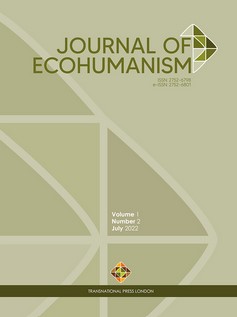
Marchesini, R. (2021). The Virus Paradigm. A Planetary Ecology of the Mind
Review of: Marchesini, R. (2021). The Virus Paradigm. A Planetary Ecology of the Mind (S. De Sanctis, Trans.), Cambridge University Press, 2021, 75 pages.
More...We kindly inform you that, as long as the subject affiliation of our 300.000+ articles is in progress, you might get unsufficient or no results on your third level or second level search. In this case, please broaden your search criteria.

Review of: Marchesini, R. (2021). The Virus Paradigm. A Planetary Ecology of the Mind (S. De Sanctis, Trans.), Cambridge University Press, 2021, 75 pages.
More...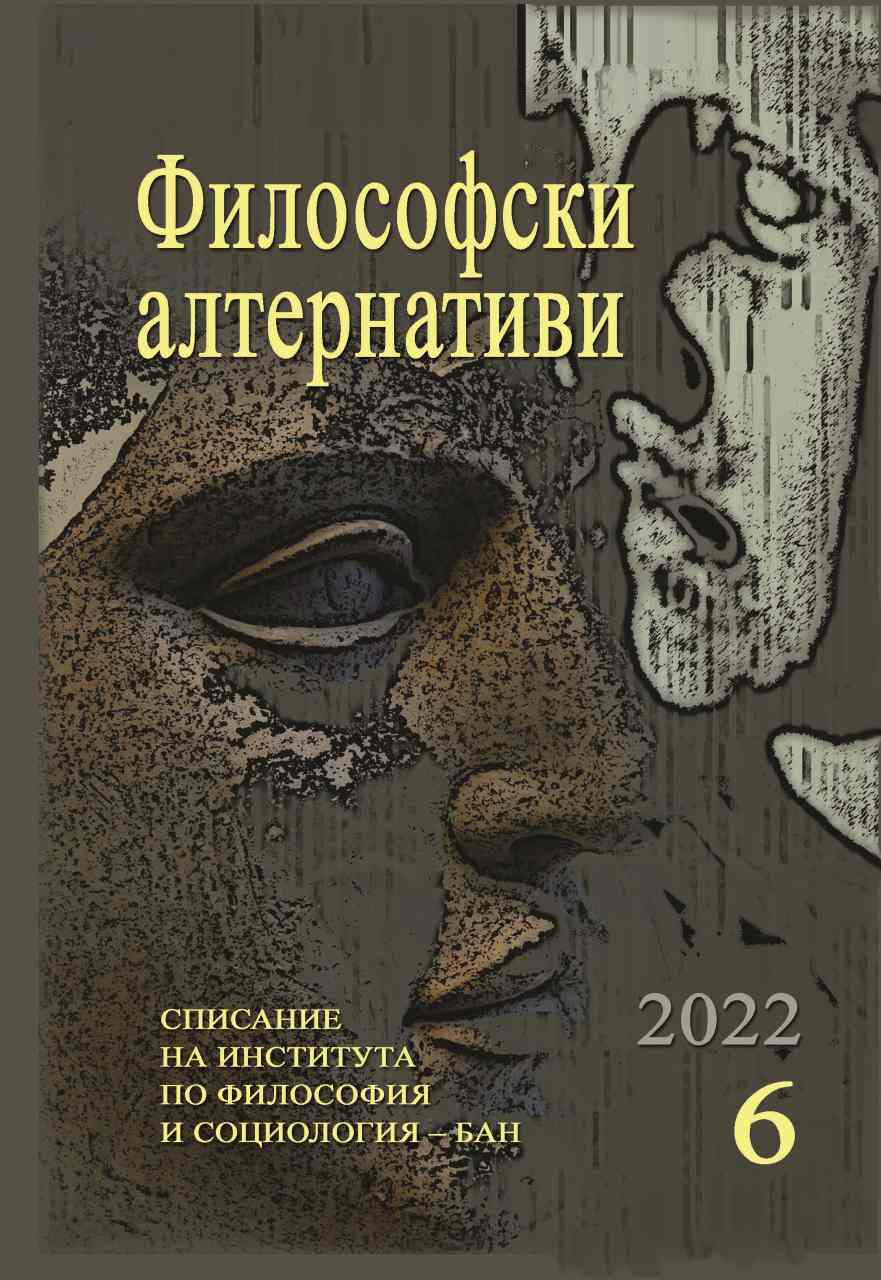
The article traces elements of the conceptual apparatus of Kant, Husserl and Heidegger, and their continuations find a response and reinterpretation in modern discussions. Kant's triple synthesis in the context of Heidegger's “Book of Kant” serves as a starting point for mastering structural connections – concepts such as “image object” and “image subject” find their place through Darin Tenev's understanding of imagination of the imagination and image of the image.
More...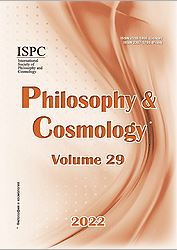
The issue of the European thinkers’ purity of consciousness is studied from the standpoint of the later M. Heidegger (in polemic with F.J. Gonzales and T. Sheehan). The article shows that Heidegger, having embarked upon the searching for new thinking, chooses the European thinking origins and, starting from the “Contributions to Philosophy (of the Event)”, he already refuses to distinguish between being and time, that is, he is looking for a third principle (thinking) for their joint grip. We believe it is no longer the being that follows from the understanding of time, but being and time from the understanding of thinking (and even thinking of being). In this new dimension of consciousness, thinking falls into the time-like phenomenology dimension, commuting with being and time. Based on the analysis of the subsequent working of Heidegger, we can conclude that thinking must go through the metaphysics path to return to its wholeness (at the origins), but already to the existential temporal unity. Thinking, commuting with being and time, starts to bend like the light in the black hole (according to the general theory of relativity of Einstein) and split (Heidegger uses the term “the Clearing of Being”). Existential thinking is a special case of this gap. It was that new dimension of thinking that the mystics and the Eastern sages aspired to. The topos, where being is joined to time, is the ultimate (pure) thinking that has overcome ignorance or attachment to the material world. It is through this dimension we begin to understand not only what being is, but also what time is, as thinking begins to distinguish its time, it temporalizes and starts to listen to its own “breathing” or temporalization of time (Heidegger wrote about). In such dimension, thinking turns into that original topos, when all connected with being flows inherently, be it Gods, humans, or the things grasping (everyone goes the way of being). The ideas of later Heidegger suggest that thinking can appear only where the being clearly exists (and Tao in its non-manifestation). Thinking arises only in conjunction with being and a new topos (thinking of being). Thinking is the gift of the being through the clearing (interspace), the one that allows you to grasp both the being and Tao. Nevertheless, based on the later M. Heidegger, it can therefore be concluded that almost fifty years after the writing of “Being and Time”, European thinkers still have not learned to think, since what awakens true thought, what should encourage us to think, and what is associated with pure thinking, has not yet awakened. It does look as if the later Heidegger was close to the idea that time reveals not only the being but also consciousness. In the classical dimension of thinking of being beyond the boundaries, both time and the being disappear, thereby closing the path to pure thinking (to avoid the “true”).
More...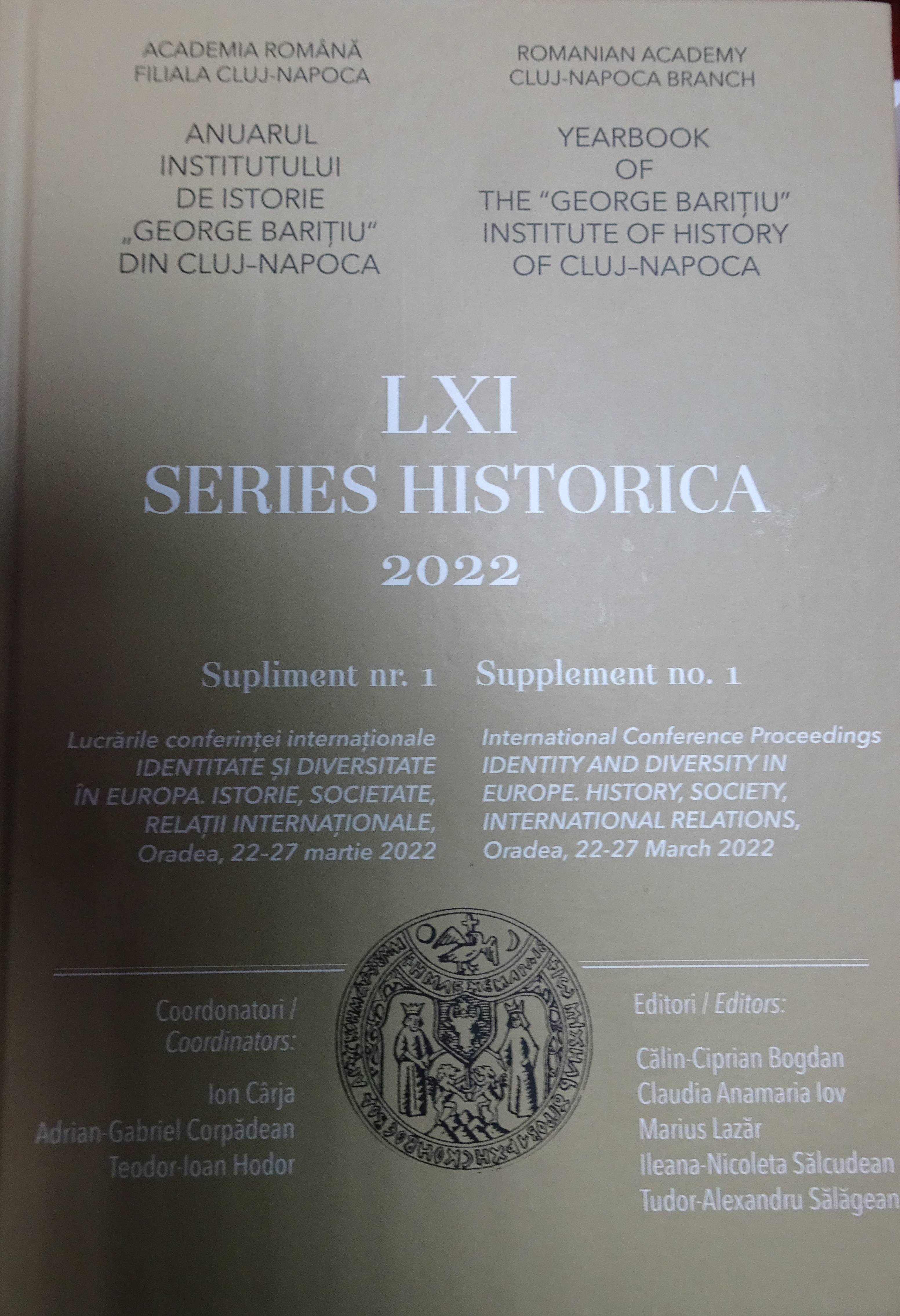
The article will explore the similarities between the mystical theory of the soul, as revealed in a volume of memoirs by the academic Nichifor Crainic (1889–1972), the philosophical current of German mysticism manifested in the 15th century by Meister Eckart and the filmic discourse of the contemporary filmmaker Werner Herzog. By analyzing the large number of common elements (symbols, motifs and metaphors) it will be shown that the phenomenon of mysticism, part of a Christian identity discourse spread throughout Europe, manifests itself in various periods of history as a transhistorical and transcultural pattern.
More...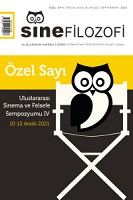
In this study, a psychological reading of the animation The Princess and the Frog (2009), a postmodern fairy tale adaptation, will be made with a Jungian approach. The film is a product of Disney, the oldest animation company in America, and like other products, it is compatible with the capitalist ideology. However, in this study, we will be considering it as an archetypal narrative because it is a fairy tale adaptation and uses the narrative elements of the tale. According to the Jungian approach, fairy tales open the doors of the archetypal world and carry information about the psychic processes of the collective unconscious also can compensate for the conscious attitudes of the collective. In this study, the Princess and the Frog is examined from the psychoanalytical perspective focusing on the fairy tale aspect. This paper analyzes the tale according to the method of the Jungian analyst Marie Louise von Franz. Accordingly, the analysis revealed that eros and logos attitudes were re-established in the film, especially in the female character. As a result, capitalism collectively pushes women to a logos-dominant behavior and distances them from the feminine archetype. After all, this study discusses the information presented by the tale about the collective unconscious regarding Disney’s conscious/cultural attitude.
More...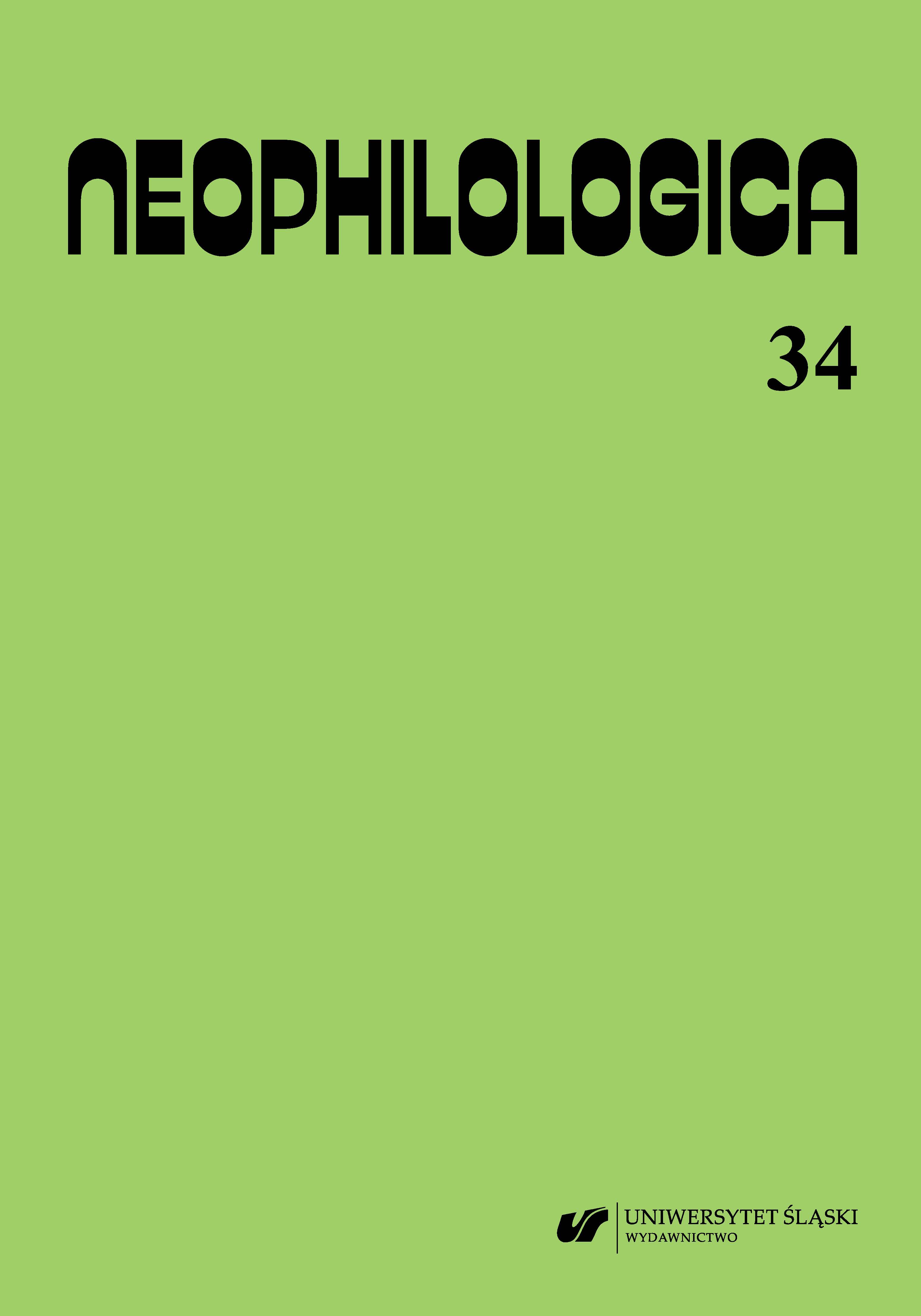
Natural languages differ not only in lexis, but also, or perhaps above all, in grammar. The importance of certain grammatical forms or their frequency of use can vary among languages. There are languages that use them or describe them differently. In the contemporary Polish grammar we will not find information about the subjunctive mood. However, when comparing it with other languages, such as Italian, we will notice certain analogies and phenomena in Polish which are not formally described, and yet they resemble the subjunctive. Nonetheless, a researcher, who will consult older studies, may discover that the description of the Polish grammar changed quite significantly and may be able to find some new insights. This text is an attempt to show that, despite the lack of a formal description, Polish uses the subjunctive, by confronting it with Italian language.
More...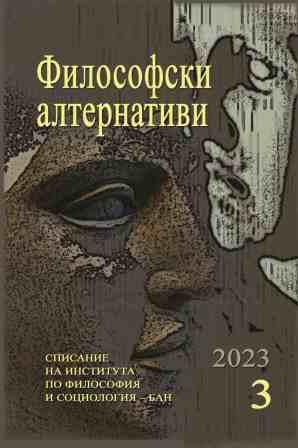
Sarah Hutton, renowned scholar of Ralph Cudworth’s philosophy in the present day, notes that Cudworth himself has constructed a conception of the human mind that lies at the root of most fully developed philosophical psychology that a representative of Seventeenth-Century Cambridge Platonists has ever endowed in the terms of his own intellectual heritage. Cudworth had turned his attention to the philosophical tradition of Platonism, especially to the Plotinus’ Enneads, to have developed the same philosophical psychology distinguished by its notion of the soul like self-determining entity having many faculties: intellectual, vital, and moral. On account of this state of affairs Hutton presumes that it is rightfully to think Cudworth undoubtedly to have carried out real theory of mind that has yielded explanations about discernible experience in relation to the human mental states. Hutton rightly thinks on account of that statement that the definitions of the essence of the soul Plotinus has presented in his Enneads, IV, are substantial part of Cudworth’s philosophical psychology that places emphasis on the notion of the soul like self-determining and ruling entity in the realm of mental processes in human vital experience. That soul according to Cudworth can in the same time sympathize with the phenomena of this experience. Here I propose discussion on these issues. I posit that Cudworth had relied on his notion of the soul when he had developed his own epistemology in relation to the conception of morality and freewill that he had been working out. Accordingly I maintain that the moral philosophy of Cudworth within this frame of reference has had its influence on the further development of the moral philosophy in Britain.
More...
The purpose of the article is to analyze sociological data that highlight the attitude of modern youth to the outstanding Ukrainian philosopher, humanist educator, poet, musician, teacher Hryhoriy Savych Skovoroda and to reveal the level of awareness among young people about the writer's life and work. The research methodology is based on the application of general scientific methods of cognitive research (analysis, synthesis) and empirical methods of sociological research (survey, document analysis). Scientific novelty. For the first time, the level of awareness of young people and young people aged 14 to 35 years about the life and national-patriotic significance of the personality and creativity of Hryhoriy Savich Skovoroda was investigated. Conclusions. Libraries of Ukraine for youth are important centers that contribute to the knowledge and understanding of Ukrainian cultural heritage by young people. According to the data of sociological studies, it was established that: modern youth are well informed about the life principles and creativity of Hryhoriy Savych Skovoroda; respondents consider the philosopher an example of a strong-willed personality; young people are patriots of their Motherland, who value the history of their region and are proud of Ukrainian culture. It was determined that now, precisely in the period of the national liberation struggle, young people are clearly aware of the value of freedom for the Ukrainian nation, which Hryhoriy Skovoroda professed. The library for youth and youth can hold informational events to popularize the work of Hryhoriy Savych Skovoroda, act as a location for modern youth events. Libraries of Ukraine for youth are important centers that contribute to the true perception of Ukrainian culture by young people. A sociological survey acts as an active way of involving the modern generation in reading and understanding the works of H.S. Frying pans and knowledge of the life principles of a philosopher.
More...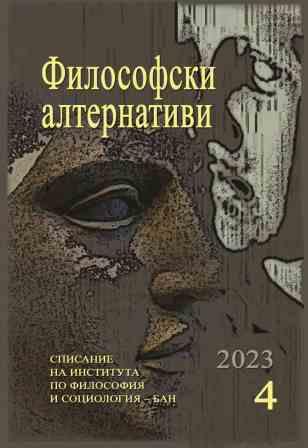
The inquiry aims at the crafting of an understanding about the limit of contemporary psychology through the lens of an idea about a fundamental science of the soul. The development of this science is primordially framed in the metaphysics of antiquity. The understanding of Eric Voegelin regarding a noetic breakthrough of consciousness – which, not by chance, coincides with that same framing, as a deepening of the motive of psyche – grounds the inquiry of a present thinking through of this science of the soul. The latter appears here as a critical background for contemporary psychology. In addition, I consider Voegelin’s metaxy as pointing to that, through which psychology would find a way towards what is inherent in it via its being defined by the named noetic breakthrough. The reaching of this depth by psychology, as its own, I consider as its inner, that is, its structuring limit.
More...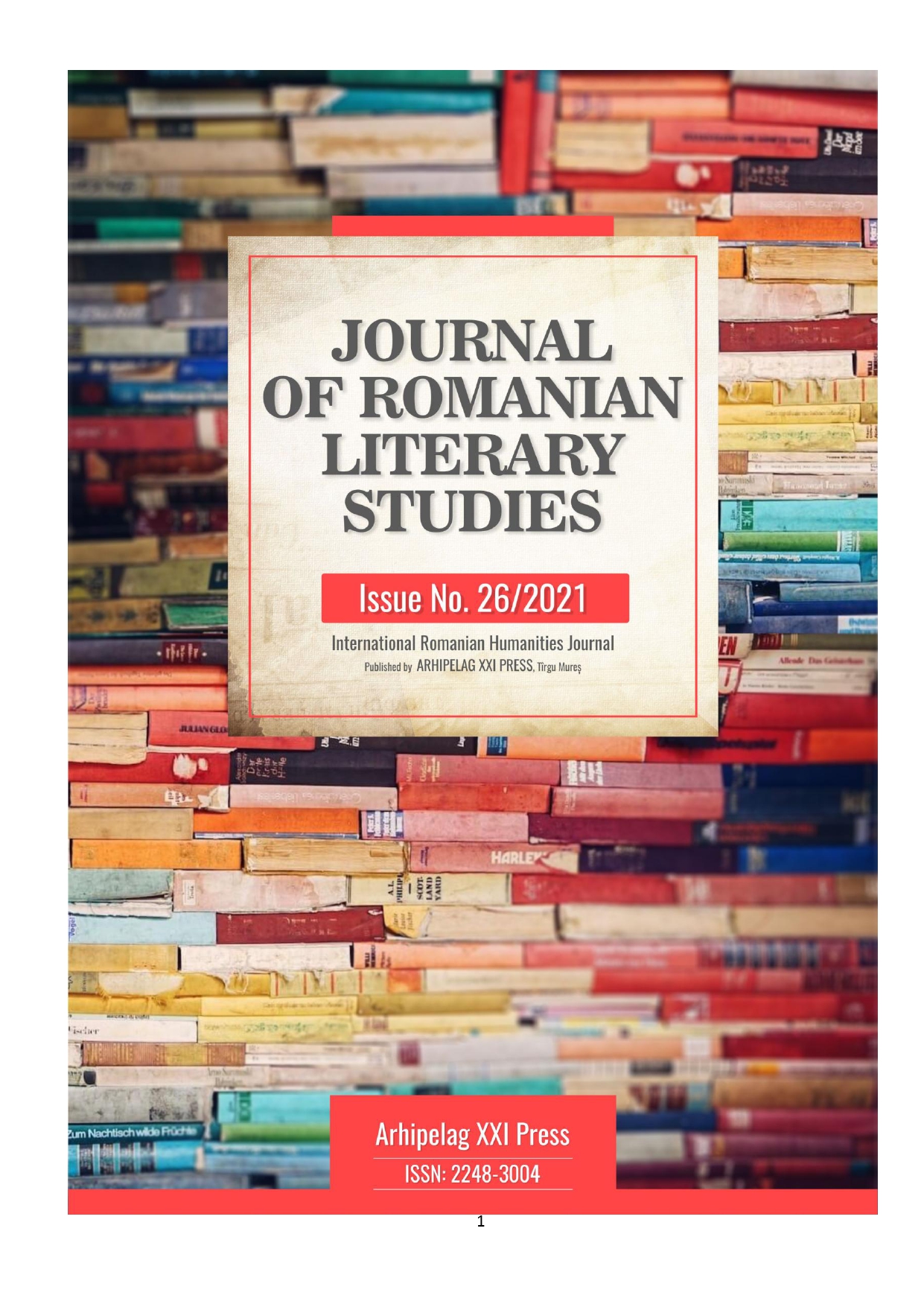
The existential vacuum arises from several interfering causes and can occur in a multitude of forms, masks and faces. The true meaning of life must be discovered outside, in the world, because the human being is not a closed system. To become human means, without a doubt, to dedicate yourself to causes oriented outside you, to a sense of love that looks at the other. In the struggle with himself, in the burden of suffering, Cioran seems to miss precisely this alliance of human perfection, often deliberately omitting contact with the world, blinded by the obsession of his own suffering. Then suffering begins to dig the (inner) subterfuges of ethics, to which we cannot determine the efficiency, nor the viability in relation to the outside, in a possible ethical process with the world, their origin being so sensibly subjective. In other words, self-transcendence is essential for ethical relationships; without it man remains captive in himself, exterminating any possibility of reconciliation with the world. The human being temporarily comes to resort to a helpful, adapted ethic.
More...
The eternal return is the greatest burden of man, but at the same time, a triumph of life, a resurrection of the tragic that is meant to fill the gaps arising from the lack of God. Nihilism comes to integrate naturally into a dimension in which morality becomes the instinct of the individual flock, where good and evil are re-evaluated values, and after the process evil is preferable to good and nothing good. All the ideas of the nihilist philosopher come at some point to serve the will to power and the ideal of a vitalism that falls into the abyss of fatalism. Once God's death is proclaimed, man must take his place. How will man rise to this higher rank? Is there morality in the process of rebellion?
More...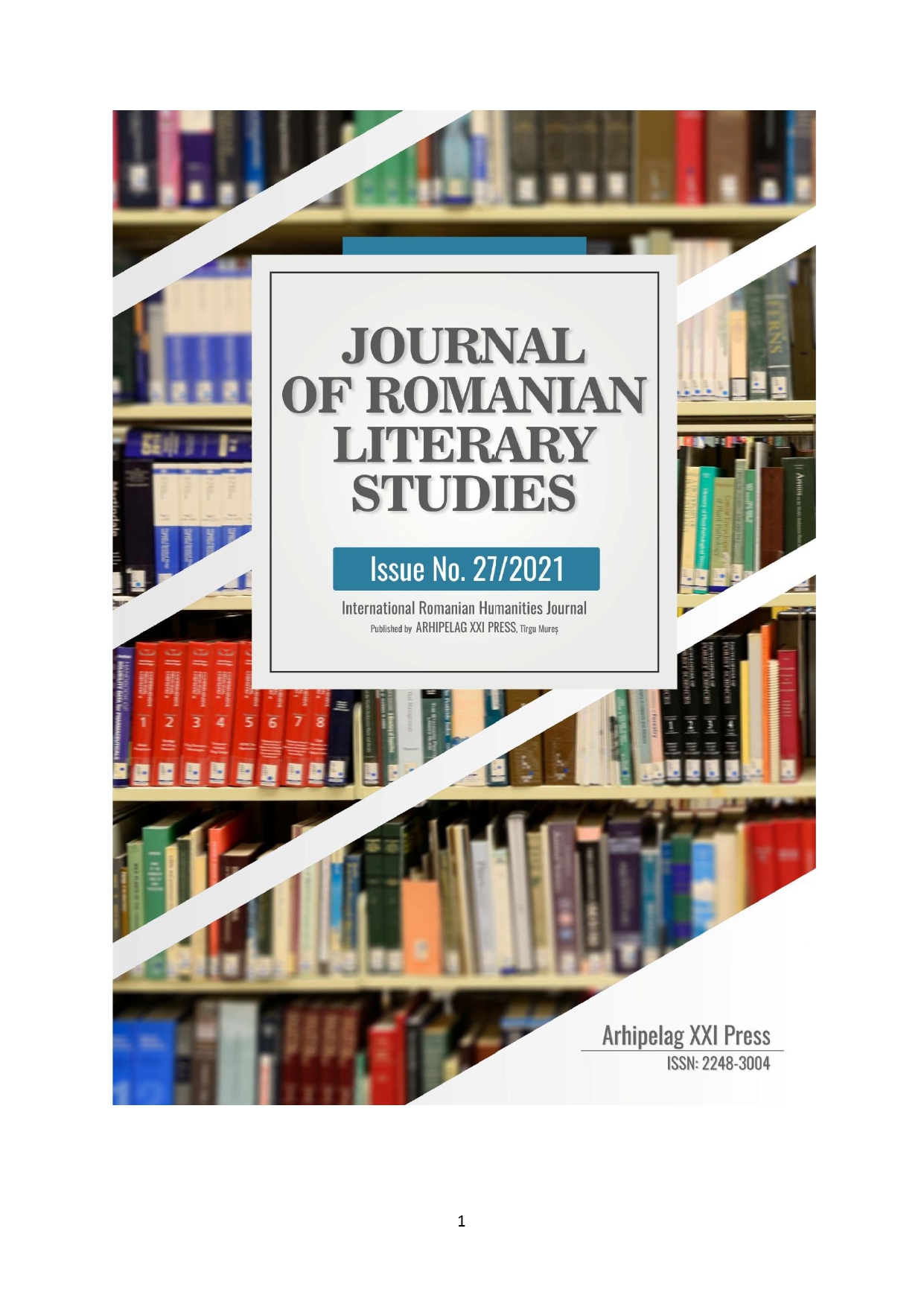
The search for answers about the connection between language and thought, represented so well by the German philosophers in past centuries all the way down to Wilhelm von Humboldt, and revisited with moderate success by the American linguistics of the 40’s, seems to have found an unprecedented enthusiasm in today’s cognitive psychology and elsewhere. Outlandish claims about language (native or foreign) are flooding the public space. The present paper focuses on such a claim by Vietnamese-born American Classicist and author Phuc Tran.
More...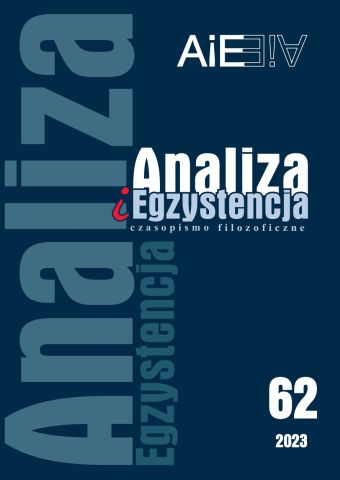
This article will be devoted to one of Jerzy Grotowski’s most important discoveries, the total act, a specific kind of action and experience. It was created as part of theatrical practice, but apart from the function related to the dramaturgy of performances, it had a higher purpose, associated with the search for the essence of humanity and sources of the experience of reality. Jerzy Grotowski sought to transform actors and observers, open them to what is authentic, alive and present. This achievement was a kind of experience in which the sacrum and the profanum are overcome. The total act allowed a person “to become watched” and, paradoxically, allowed them to participate in the duality of passive action, in which a person becomes an observer and agent at the same time. My goal is to describe the role of the principle of coexistence of opposites in the work of J. Grotowski. I am describing the total act as an opportunity to reach an experience of reality in which the mind and the body merge with each other. Humankind as a psychophysical unity precedes all differences in this experience, he or she is able to reach the very center of their own self, that which Jung called Selbst. According to J. Grotowski, this state is possible when the influence of myths and collective ideas is overcome.
More...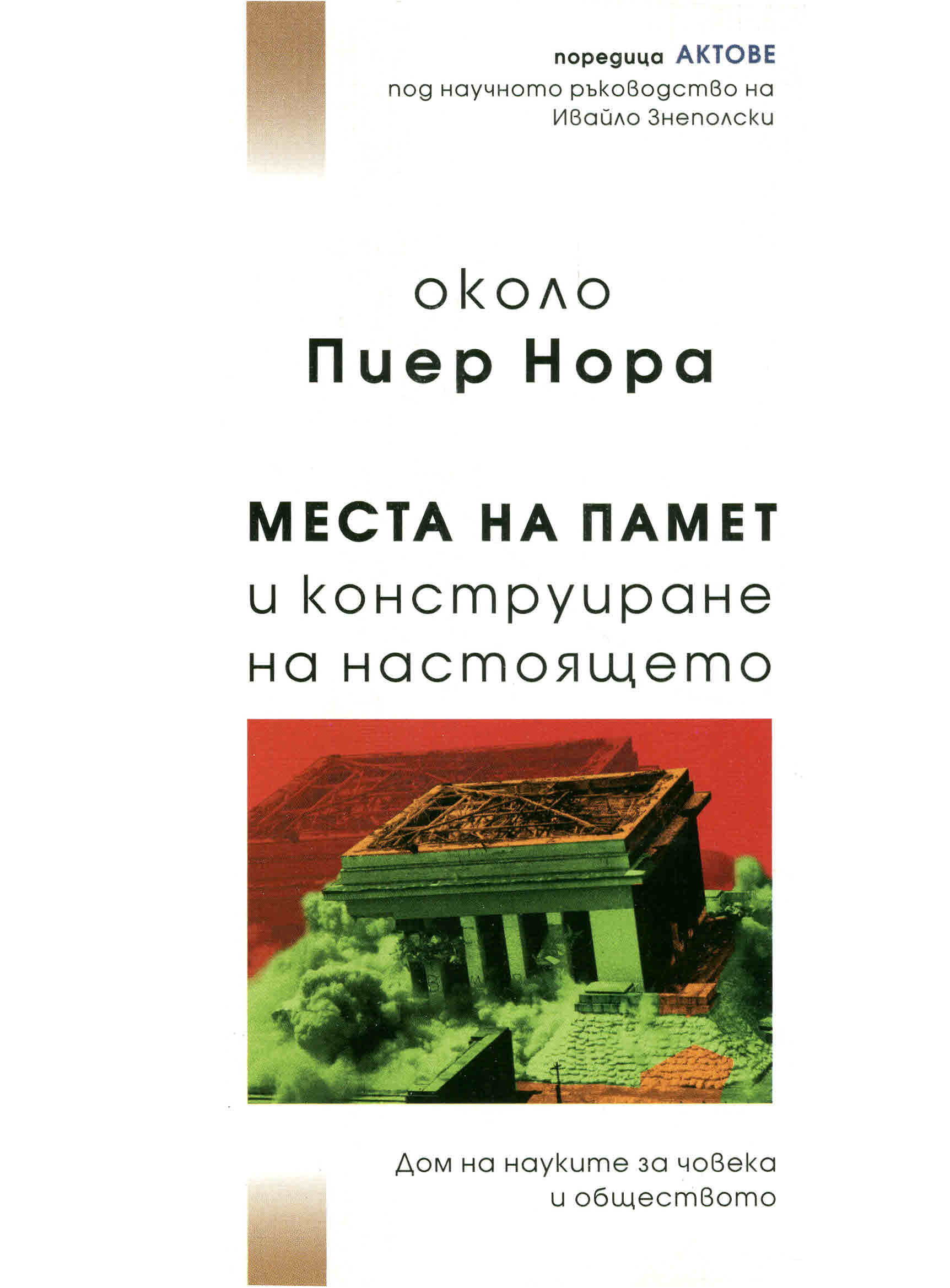



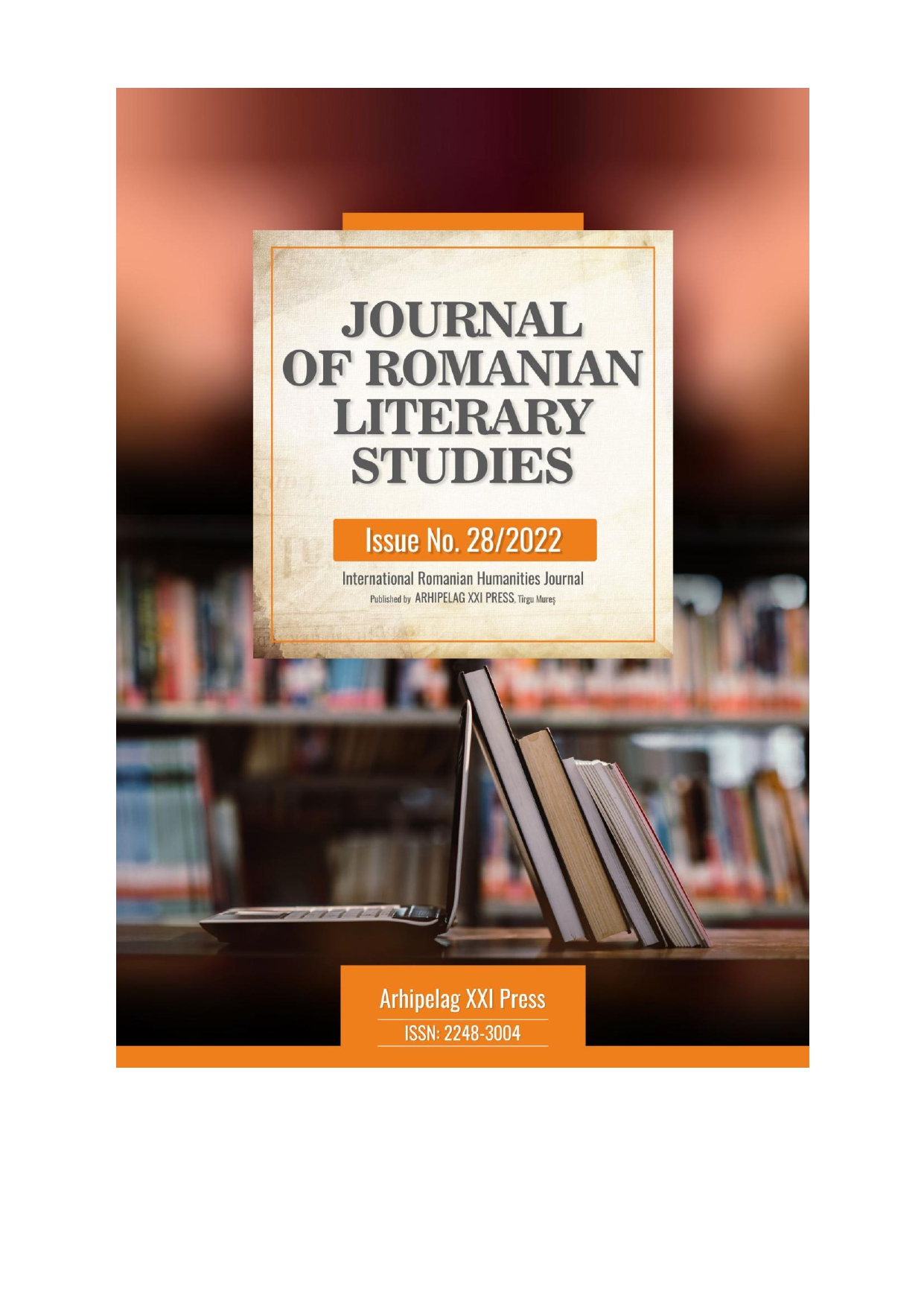
Philosophers have been concerned with the general ideas of good and evil since ancient times and these concepts still arouse interest. The values promoted by morality fall within the category of the good. The notion of good can be particularized in virtue, justice. Evil has been opposed to good. It has been stated that evil has no substance, it has no autonomous entity. The reasons that urge someone to act for good or evil purposes have also been taken into account. It is not common to relate to the same view of philosophers with regard to the possibility of interpreting the concepts of good and evil, respectively. Ethics attempt to solve, beyond the philosophical aspects, real life situations requiring a position.
More...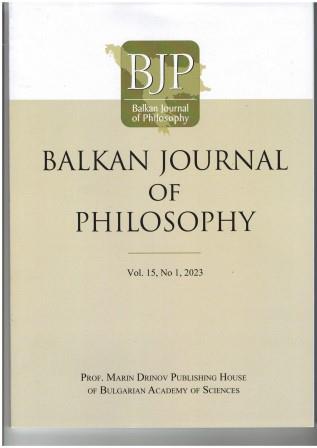
I contrast two construals of the thesis that truth is independent of verifiability in principle: a modal one and a non modal one. I argue in favor of the modal construal and then, on that basis, that independence holds across the board, i.e., even for statements that are verifiable by us relative to familiar, customary, non-skeptical standards.
More...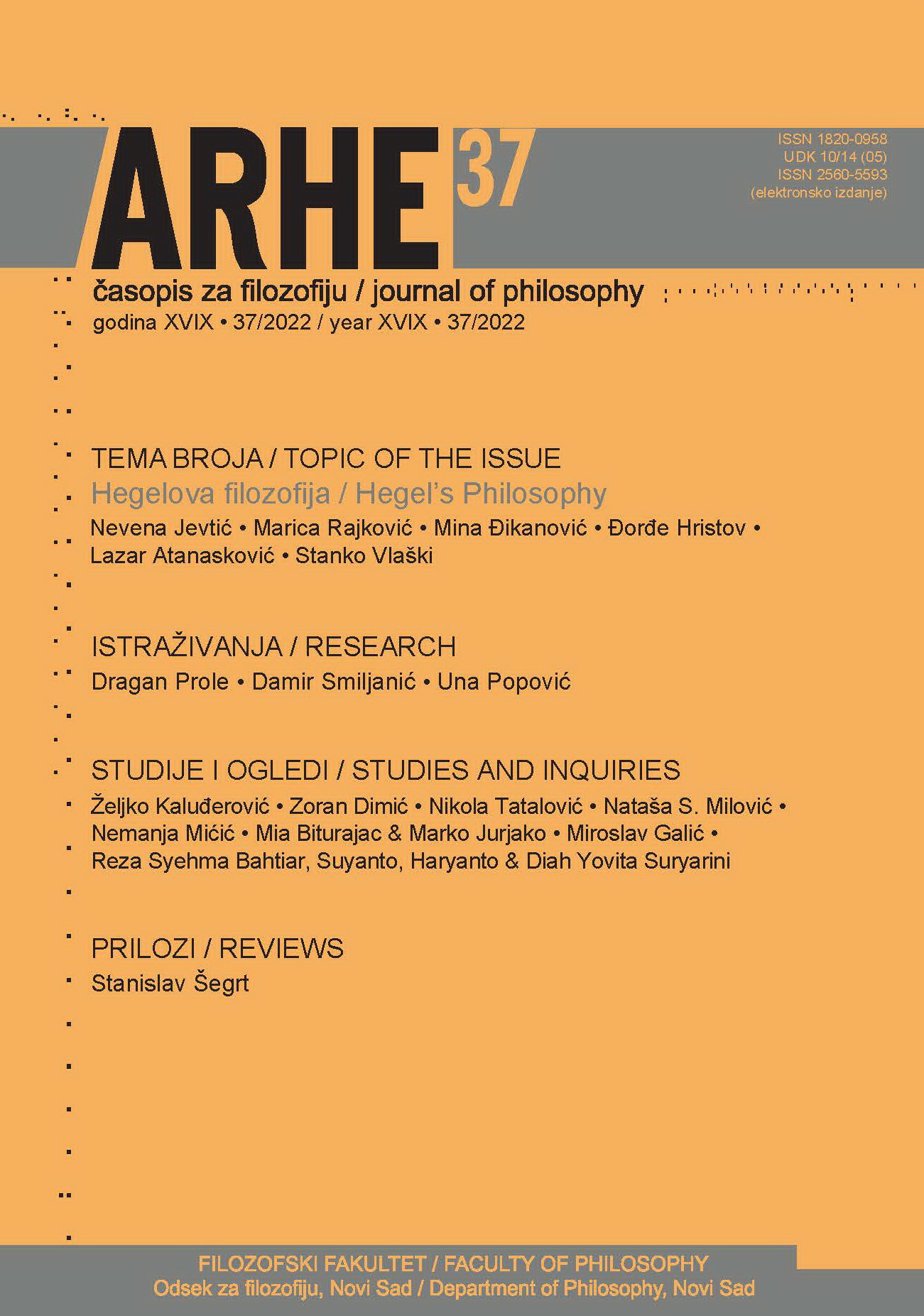
This article presents an introductory investigation of the so-called original history in Hegel‘s Lectures on the Philosophy of World History. It begins with the problematization of Hegel's terminological invention Die ursprüngliche Geschichte, pinpointing the ambiguous character of originality as an adjective by which Hegel describes the practice of some historians. Hegel's concept of originality here is investigated through an inquiry towards the defining features of historiographical practice. This inquiry is led by the traces of Hegel‘s description of the practice of the first historians as creators of the lasting intellectual representations by which collective memory is constituted. Then, following the specific formulations from Hegel‘s Introductions, the practice of the original historians is further interpreted as the practice of the transmission of transitory content of perception to the medium of lasting representation. Interpretation concludes with remarks about the importance of Hegel‘s theory of Erinnerung and Gedächtnis for further understanding of his theory of historiography.
More...